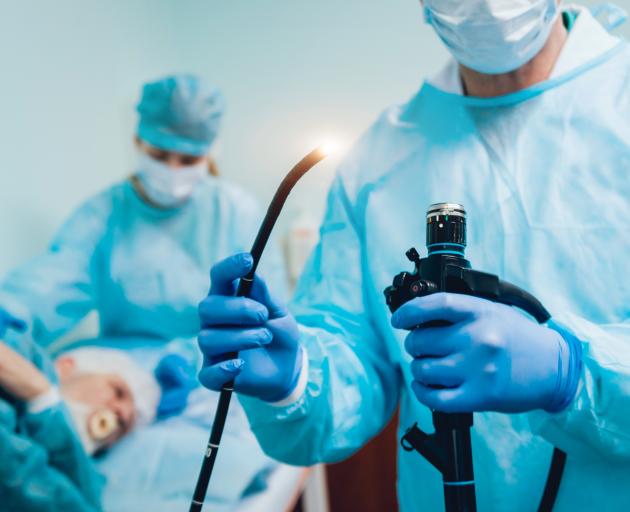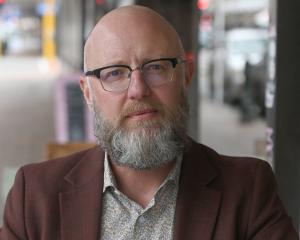
He was responding to questions about a survey of users of the board's endoscopy service in which 15 senior doctors, out of the 82 respondents, said they were aware of patients harmed as a direct result of a procedure that was not accepted when all relevant information was supplied.
As well as concerns about patient harm, criticism from the 2017 survey respondents included under-resourcing, the rigidity of the application of the colonoscopy access criteria which meant some symptomatic patients in the ''grey zone'' missed out, and a variety of responses about offensive or difficult communication with the service.
A few of the 42 respondents who provided general comments praised the service, but most were critical.
One said it ''sounds like it is a disaster waiting to happen'' and another who said they had worked at six DHBs described it as ''dreadful'' and ''by far the worse gastro service I've encountered''.
A summary of the 2017 survey results became public in May, included in a leaked draft of a damning external review of access to colonoscopy and concerns raised by some Southland Hospital surgeons, carried out by general surgeon Phil Bagshaw and gastroenterologist Steven Ding, both of Christchurch.
Mr Fleming said the confidential 2017 survey had been carried out as an internal quality improvement exercise by the gastroenterology department, but participants were asked to forward details of relevant patients' national health index (NHI) numbers so their cases could be investigated.
However, Mr Fleming said only a few responses included NHI numbers, and these were investigated, but no details were supplied for the others so they could not be substantiated.
''Furthermore, as it was undertaken anonymously there was no way to follow up.''
He said it was also important to note that, apart from one case which was flagged two years later, no other cases had been submitted through the Safety 1st portal.
Safety 1st is an electronic system which collects and reports on safety and risk event data at local and regional level.
The survey responses revealed in the draft report appendices showed not all concerns about harm were detailed, but they included a claim that a cancer patient had died sooner than he should have, a patient who was initially refused a colonoscopy after referral from the Emergency Department and was later found to have secondary cancer, and a variety of delayed diagnoses.
After repeated questioning about when the board's senior management was made aware of the survey results, Mr Fleming said it did not appear the survey was escalated at the time, although concerns had been raised through other channels.
(Three years ago, in an email to chief medical officer Nigel Millar, Southland surgeons described their concerns as well known and of long standing. Their issues became public last year when a letter to Mr Fleming airing their frustration about the lack of progress in dealing with their issues was sent to the Otago Daily Times.)
Further questions about protocols for such surveys and whether it was usual practice for senior management not to be advised about serious issues raised in them have yet to be answered by Mr Fleming.
Asked if the board management had been proactive enough in dealing with clinicians' concerns about patient harm, Mr Fleming said while ''a number of steps have been undertaken to try to address this, we regret the situation has persisted so long''.
As a response to the survey, the style of correspondence was altered to ensure more positive communication between the department and the wider hospital.
Efforts were made to build greater understanding between parties.
Ultimately, the external review was commissioned to provide a process for identifying and reviewing any cases of concern, he said.
The external review was first proposed in 2016 but did not get under way until the end of last year.
The Ministry of Health says it was not advised about concerns raised by senior doctors and Southland surgeons before bowel screening started.
Asked why this was, Mr Fleming said while there had been anecdotal issues raised about the management of some patients, '' there was little evidence to substantiate this and therefore share''.
This was the challenge the external review aimed to address.
Ministry population health and prevention deputy director general Deborah Woodley, asked about the rigour with which difficulties about access to colonoscopy might have been examined before the programme was introduced, said capacity issues were identified in medical oncology, surgical theatre and radiology.
''After discussion with the clinical staff, these issues were formally raised with the DHB and addressed, which led to the decision to go live in April 2018.''
As part of the readiness assessment, the ministry had met teams from Dunedin and Invercargill hospitals.
Mr Fleming said the DHB had undertaken considerable work to ensure it had capacity to handle the bowel screening programme.
It had continued to meet wait-time goals for colonoscopy since the programme began a year ago.
So far, the programme had detected 80 cancers that would not otherwise have been detected, and removed precancerous lesions in more than 700 participants, so the health of the Southern DHB ''has undoubtedly been improved following implementation''.
However, the external review drew attention to the low colonoscopy rates at Southern DHB, even though it has the third-highest incidence of colorectal cancer (CRC) in the country.
Ms Woodley said there had not been concern about the board's colonoscopy numbers for symptomatic patients.
Asked about the continuing high proportion of CRC being first diagnosed at the emergency department at a late stage in an area with such a high crude rate of the disease, Ms Woodley said the screening programme would reduce the ED numbers.
Mr Fleming said delays to definitive treatment did not appear to be related to the referral process but said no DHB collected data specifically to show whether patients whose cancer was first diagnosed at the ED had previously been refused a diagnostic test or examination.
Asked how many general practitioners simply did not attempt to refer patients for colonoscopy because they knew they would be knocked back, Mr Fleming said he believed it was unlikely GPs would not refer if they believed there were good clinical reasons to do so, as they were accountable for following reasonable processes in providing care for their patients.
Criteria for access to colonoscopy was not perfect and '' never will be perfect'', he said.
That was why bowel screening was needed; to better identify the disease at an earlier stage.
''So I could not say we would not have joined the bowel screening programme due to complaints about access - this would be the very reason to join bowel screening.''
Regarding cancers first diagnosed at the ED, Mr Fleming said there were likely to be many reasons for these, including the affordability of primary care or unpredictable acute presentations.












